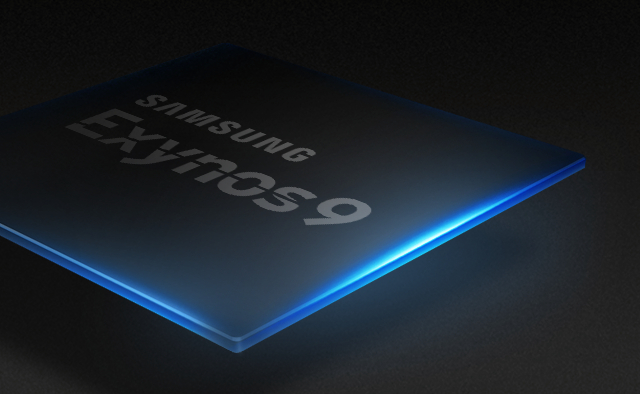Samsung's 7nm Exynos 9825 Updates Efficiency (But Not Much Else)

Samsung has announced Exynos 9825, the first SoC manufactured on the its 7LPP extreme ultraviolet (EUV) process. The chip itself has largely remained the same, but the new process should give it a substantial boost in power efficiency. The sustained performance, (directly linked to power consumption and heat management), address areas of criticism for its predecessor, the 8nm Exynos 9820.
Samsung was the first foundry to adopt the EUV lithography, which the company said helps it print finer circuits and, thus, develop a more power-efficient processor.
However, adopting EUV also meant staying a little behind TSMC, which stuck to the more conventional deep ultraviolet (DUV) lithography for its first-generation 7nm process. Qualcomm used TSMC’s 7nm process to manufacture its Snapdragon 855 flagship processor this year, which, combined with the new Kryo 485 Gold cores based on Arm Cortex-A76 IP, gave the Exynos 9820 a run for its money, especially in the power efficiency department. The 8nm Exynos 9820, used in some Galaxy S10 SKUs this year, didn’t stand a chance.
Samsung Exynos 9825: A Mere Refresh
It seems that instead of improving the Exynos 9825 processor significantly, Samsung used a largely unmodified processor. The chip uses the same 2xM4+2xCortex-A75+Cortex-A55 core configuration at the same clock speed. The exception is the Cortex-A75 cores, which have been bumped to a 2.4 GHz clock speed, compared to 2.31 GHz in the Exynos 9820.
The new SoC even uses the same Shannon 5000 Cat. 20/13 modem with up to 2 Gbps download speeds and only 316 Mbps upload speeds. The SoC does support integration with Samsung’s 5G Exynos Modem 5100, but the 5G modem won’t be built into the SoC this generation.
The new Exynos 9825, like the 9820 before it, also supports up to 8K resolution video encoding and decoding with the h.264, VP9 and HEVC codecs. Neither Samsung nor other chipmakers seem ready to implement the next-generation royalty-free AV1 codec, but we hope to see it in Samsung’s 2020 SoCs.
In terms of security, the Exynos 9825 also supports Samsung’s Physical Unclonable Function (PUF) to store and manage user data in isolation from the main operating system. The PUF provides features such as cryptographic key generation and storage, too, but it’s not clear if the SoC supports the new Android StrongBox Keymaster hardware security module implementation yet.
Stay On the Cutting Edge: Get the Tom's Hardware Newsletter
Get Tom's Hardware's best news and in-depth reviews, straight to your inbox.
As it doesn't offer too many improvements over the older Exynos 9820, the new SoC is likely to have a short life, potentially only going inside Samsung's Galaxy Note 10, later this year. Qualcomm stepped it up this year with both the adoption of TSMC's 7nm process, as well as the adoption of Arm's excellent Cortex-A76 core. It remains to be seen if Samsung can one-up Qualcomm next year with a new "M5" custom core, or perhaps by adopting Arm's next-gen Cortex-A77 core.
